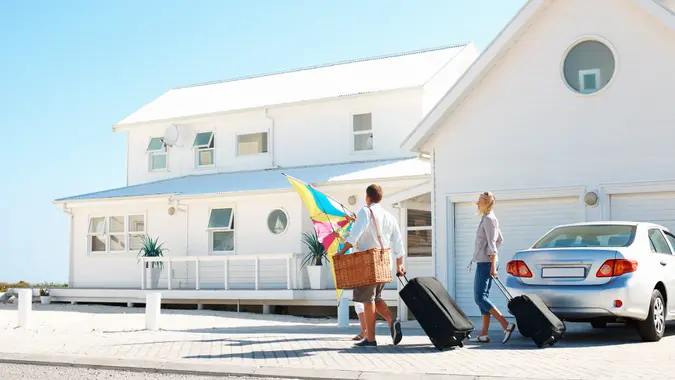Owning a vacation home sounds like a dream to many people, and it can be. However, there is more to owning a vacation home than most may realize. Here are some of the costs and benefits associated with owning a vacation home.
Pro: You Can Use it for Passive Income
Passive income is a secondary (or primary) stream of income that you don’t have to work for or work as hard for. When you own a vacation home, you can use it as a vacation rental property, meaning that you can rent it out to tenants while they’re on vacation. The money they pay to use your vacation rental can be applied towards payments on the property, keeping up with the maintenance of the property, or anything else you’d like.
Con: You Have to Think About Maintenance
Speaking of maintenance, this is one of the downsides to owning a vacation home. All homes require some type of maintenance, whether it’s your primary residence or not. Things like water leaks, a broken air conditioner, and even electrical issues are all things that you can see with your vacation home. The good news is that you can hire a property manager to help keep up with maintenance on your vacation home, but keep in mind that this is also an added expense.
Pro: You Can Take Last-Minute Vacations
When you have some extra free time that you didn’t expect to have, you can take a last-minute vacation. However, it may be hard to find a hotel, Airbnb, or any other type of accommodation at the last minute. This problem is solved when you have your own vacation home in your favorite vacation spot.
Also, some people may prefer a “stay-cation” or to stay in a home-like environment, versus a hotel. Your vacation home is your second home, so you’ll be more comfortable.
Con: There Are Unexpected Expenses
Not only will you have to keep up with the maintenance of your vacation home, but this also means that there will be some unexpected expenses that could come up— just like with your primary residence. Repairing water leaks, air conditioners, and electrical problems all cost money, so it’s a good idea to set money aside for repairs on your vacation home as you would with your primary residence. This is why many people choose to rent out their vacation homes during certain times of the year.
Pro: You Qualify for More Tax Breaks
If you’re already a homeowner, you know that you get certain tax breaks for owning a home. The same is true for owning a vacation home— as long as you’re not using it as a rental property. You’ll have to check the tax laws as they apply to where your vacation home is located for all rules and regulations regarding vacation homes and taxes.
Con: It Can be Expensive
As mentioned earlier, the upkeep of your vacation home can be expensive, but so can purchasing the vacation home itself. The down payment for a property that will not be your primary residence is usually higher than it would be for your primary residence. There are, however, lenders and loans available— even for those who plan to use their vacation home primarily as a rental property.
A more affordable option (in some cases) would be to build a vacation home. This option gives you more flexibility with the cost of owning a vacation home. Building a vacation home can be considerably less or considerably more than buying an existing vacation home.
Pro: You Can Customize it Anyway You’d Like
If you’re not fond of the interior decor of most hotel rooms, you can design your vacation exactly the way you’d like. Not all hotels will have the amenities that you want (such as a pool, gym, or even something as simple as a coffee maker), but when you have a vacation home, you can add all the amenities you want. This is especially true if you build your vacation home with custom home builders. Not only will you have the amenities you want, but you’ll have the floor plan you want as well.
Overall, owning a vacation home can be a good investment. You can build or buy an existing home, and you can use it exclusively for yourself, as a vacation rental property, or a combination of both. You can even use it as your retirement home in the future. The pros can outweigh the cons when you’re more prepared to own a vacation home.

